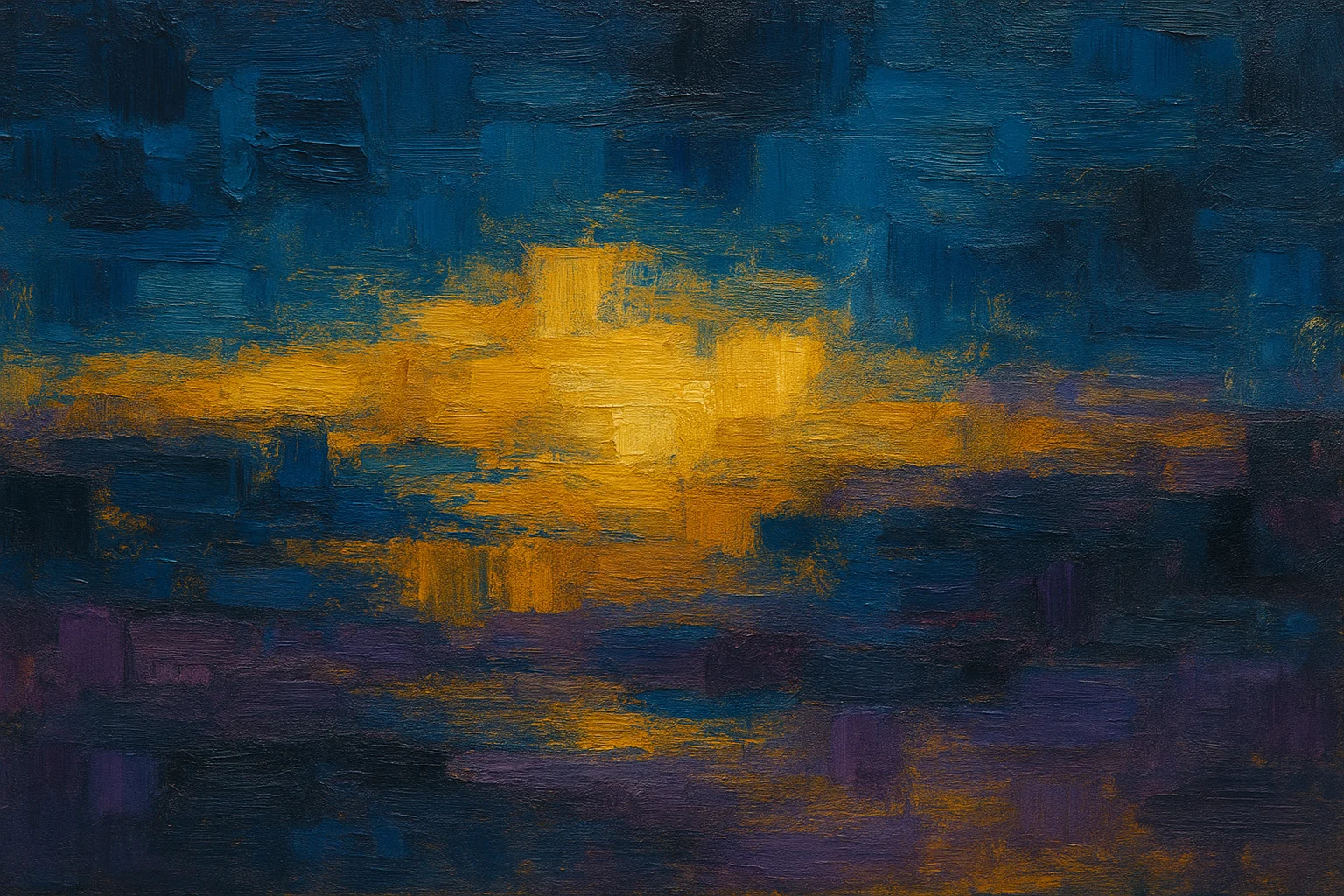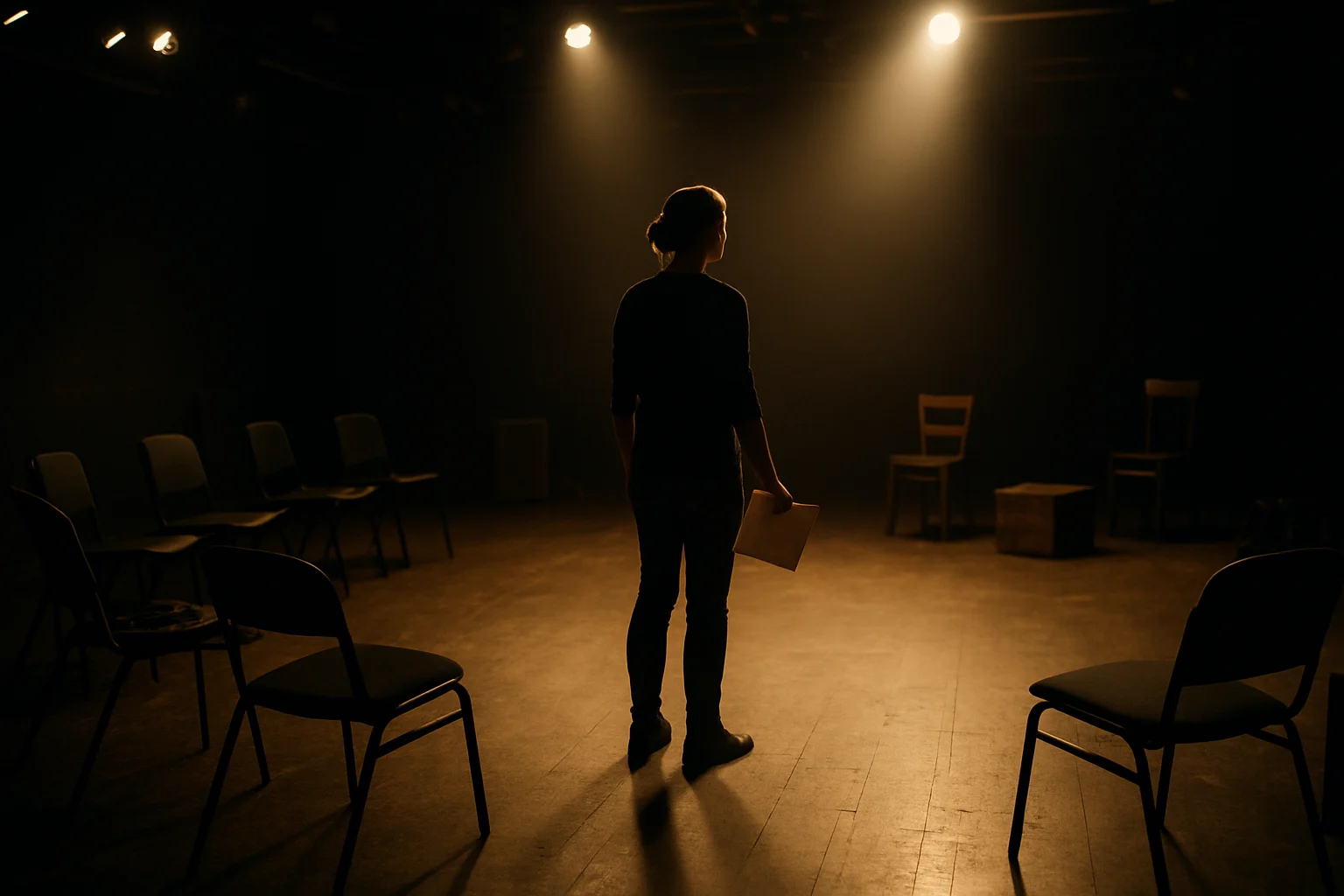
They say every theater has its ghosts. Some are just whispers carried on drafts, tricks of light in dusty aisles, or creaks in the old wood that you swear sound like footsteps. But on Halloween night at the Grandville Theater, it was more than that. The stage sat empty, bathed in the cold glow of a single ghost light, casting long, unsettling shadows that reached across the seats as if they had something to say. As the last one left in the building, I was just finishing my notes, savoring the quiet—until that stillness took on a life of its own, and the line between performance and reality began to blur.
Halloween night at the Grandville Theater was unusually quiet—the kind of quiet that makes you wonder if you accidentally summoned something just by existing. The stage was dark, lit only by the ghost light in the center, casting long, overly dramatic shadows across the empty seats, as if it knew tonight was primed for theatrics. I was the last one in the building, organizing my notes and double-checking cue sheets, pretending I didn’t mind being alone in a pitch-black theater on Halloween. Normally, this whole routine was pretty chill, but tonight, the theater felt… off. Now, for anyone who hasn’t spent enough time in old theaters, a ghost light is basically a supernatural nightlight, a theatrical scarecrow of sorts meant to keep ghosts busy so they don’t start their own production of Phantom of the Opera. But tonight, it had this “extra spooky” blue glow, and I was starting to wonder if I’d missed the memo about inviting ghosts to rehearsal.
Just as I was assuring myself that everything was perfectly normal, I heard a faint whisper. I froze. It sounded like the background murmur of a crowd waiting for a show to start, but it was just me here, doing my best impression of bravery. Then I realized the whisper was forming actual words. Specifically, my name. “Bryan…” “Oh, great. I’m hearing voices now,” I muttered, powering on through my work with the kind of determination usually reserved for avoiding awkward conversations. But then, I saw something strange on my paperwork. Where my name should have been, the ink looked smudged, like someone had finger-painted over it mid-breakdown. And then, as if on cue, the ghost light flickered. Because of course, it did. And naturally, it went out completely.
My heart started doing jazz hands in my chest. I clicked on my flashlight and headed toward the breaker box, giving myself a pep talk. As I walked, the air suddenly felt freezing, giving off a “haunted house in October” vibe. The ghost light sprang back on, casting a strange glow across the stage like it was trying to tell me something. I walked toward it but stopped dead in my tracks. There, in the edge of the ghost light’s beam, was… a figure? A hunched, shadowy something, dressed in what looked like the tattered remains of old stagehand clothes, staring at me like they’d seen every tech run since Shakespeare was alive. They raised a finger, slowly pointing toward center stage like a spectral usher. And this was where all logic and self-preservation stopped calling the shots. Instead, something compelled me to step forward. I walked up to the ghost light, facing the empty auditorium, and the whispers picked up again—a mix of laughing and weeping like they couldn’t decide if I was killing it or totally bombing. The shadowy figure disappeared, replaced by ghostly faces in the audience, each looking like they’d heard a bad joke and didn’t find it funny.
Then, I looked down and saw a dusty prompt book lying at my feet, opened to Macbeth—you know, the one play you’re not supposed to say in theaters. I picked it up, flipping through, only to see notes in handwriting that looked suspiciously like mine. Cues I had absolutely zero memory of writing. One cue read, “Last Call.” Another said, “All actors exit—forever.” At this point, every nerve in my body was yelling “Exit, Stage Left,” but just as I turned, the ghost light flickered, and I saw it—my shadow wasn’t alone. The stagehand’s shadow was standing beside me, grinning like he was loving the show.
That was it. I bolted. The ghost light went out, throwing the stage into pitch blackness, and my flashlight only lit up an empty stage. No ghosts, no whispers, nothing but me, and a very fast heartbeat. The ghost light popped back on, as calm as could be, and there at its base was a note I’d never seen before. It read, “Leave the light on, or join the cast.” And that was my cue to exit. I was out of there faster than you can say “standing ovation,” leaving the ghost light burning behind me. When I came back the next day, the note was gone, my papers were back to normal, and everything looked like a regular old theater. But now, every time I’m alone on that stage, I swear I feel a bunch of invisible eyes watching—probably wondering when the next “performance” will start.
So, was it all just my overactive imagination fueled by too many Halloween horror movies? Maybe a harmless prank pulled by some bored stagehands with a flair for the dramatic? Or perhaps, just maybe, there really is something lurking in the dark corners of the Grandville Theater, waiting for its next “performance.” After all, every old theater has its secrets, and sometimes, they’re the kind that don’t stay hidden. So, if you find yourself alone on a quiet night with only the ghost light for company… maybe don’t stick around to see what comes out when the curtain rises.



